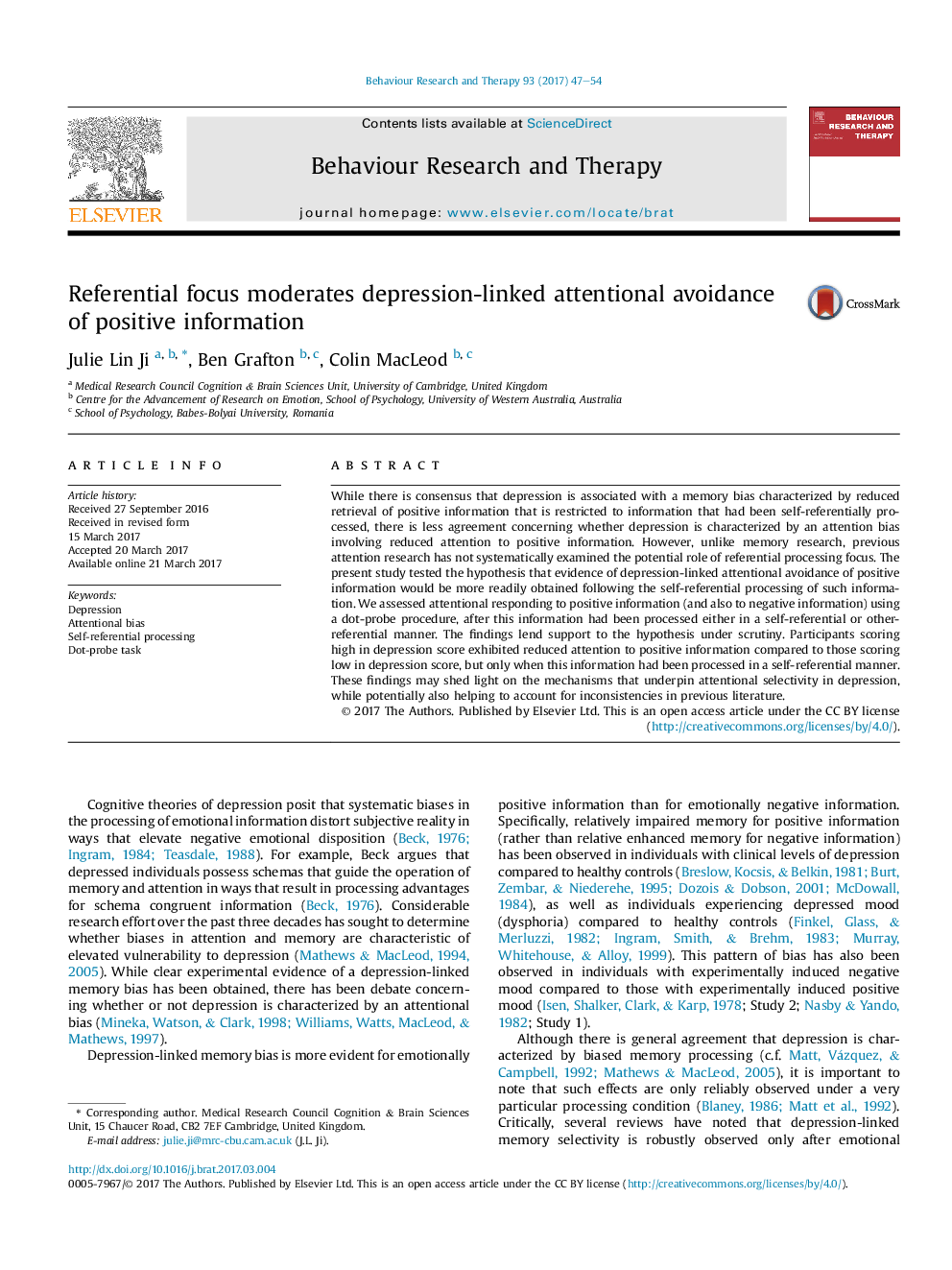ترجمه فارسی عنوان مقاله
تمرکز ارجاعی، اجتناب از توجه مثبت به اطلاعات افسردگی را تعدیل می کند
عنوان انگلیسی
Referential focus moderates depression-linked attentional avoidance of positive information
| کد مقاله | سال انتشار | تعداد صفحات مقاله انگلیسی |
|---|---|---|
| 158979 | 2017 | 8 صفحه PDF |
منبع

Publisher : Elsevier - Science Direct (الزویر - ساینس دایرکت)
Journal : Behaviour Research and Therapy, Volume 93, June 2017, Pages 47-54
ترجمه کلمات کلیدی
افسردگی، تعصب توجه پردازش خود ارجاعی، کار دونده پروب،
کلمات کلیدی انگلیسی
Depression; Attentional bias; Self-referential processing; Dot-probe task;
ترجمه چکیده
در حالی که اتفاق نظر وجود دارد که افسردگی با یک تعصب حافظه مرتبط با کاهش یافته بازیابی اطلاعات مثبت است که محدود به اطلاعات است که خود ارجاع شده پردازش شده است، توافق کمتر در مورد اینکه آیا افسردگی با توجه به افسردگی با توجه به کاهش توجه به مثبت اطلاعات با این حال، بر خلاف تحقیقات حافظه، تحقیقات توجه قبلی، به طور سیستماتیک نقش بالقوه تمرکز پردازش مرجع را مورد بررسی قرار نداده است. در مطالعه حاضر فرضیه مورد بررسی قرار گرفت که شواهد از اجتناب اطمینان اطلاعات افیون مرتبط با افسردگی پس از پردازش خود ارجاعی از چنین اطلاعاتی راحت تر خواهد بود. ما با پاسخ دادن به اطلاعات مثبت (و همچنین اطلاعات منفی) با استفاده از یک روش نقطه دندانه، اطلاعاتی را ارزیابی کردیم، پس از این اطلاعات به صورت خود ارجاعی یا سایر ارجاعات پردازش شده است. یافته ها حمایتی از این فرضیه را تحت بررسی قرار می دهند. شرکت کنندگان با امتیاز بالا در میزان افسردگی نمایش داده شده، توجه به اطلاعات مثبت را نسبت به افرادی که نمره پایین افسردگی را به دست آوردند، کاهش داد، اما تنها زمانی که این اطلاعات به شیوه خود ارجاعی پردازش شد. این یافته ها می تواند بر مکانیزمی که سبب انتخاب انتخاب توجه در افسردگی می شود، روشن شود، در حالی که به طور بالقوه نیز به دلیل ناسازگاری در ادبیات قبلی کمک می کند.

